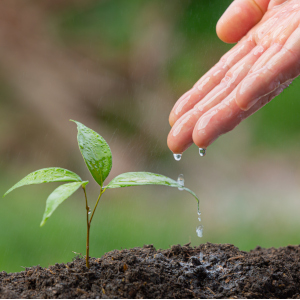Desalination of brackish water in communities in Rio Grande do Norte combined with photovoltaics and the latest technology
ABOUT IT
The desalination project run by CPFL Renováveis and State Grid brings drinking water to 800 homes in the indigenous communities of São Bento, Amarelão and Santa Terezinha in the municipality of João Câmara in Rio Grande do Norte. The desalination system, which is fully automated, has the capacity to produce 80,000 liters of drinking water per day, around 20 liters per day for each inhabitant of the three communities in the municipality of João Câmara.
The project was designed to meet a water salinity level of more than 50%, which would even make it possible to treat seawater. As the water salinity index in the region where it is installed, on the banks of the RN-406, is 30%, there is a high degree of efficiency and minimal waste generation (0.25%/year). The desalination system is powered by photovoltaic (solar) energy, which allows it to operate independently. Waste generation is minimal or insignificant (only chemical product packaging). The impact on greenhouse gas emissions is zero, more than 15 tons of CO2 emissions are avoided annually and when there is spare energy, the clean energy is injected into the grid.
Results and Objectives
- Promote the energy source diversification of the company's businesses and operations towards clean energy (generated from low-impact renewable sources).
- It has treated water for 3,000 people.
- It has generated 100 direct and indirect jobs.
SDGs
External Certification
International Commitments
National Commitments
More info





